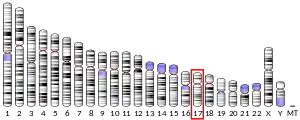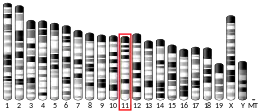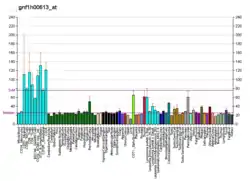| NSRP1 | |||||||||||||||||||||||||||||||||||||||||||||||||||
|---|---|---|---|---|---|---|---|---|---|---|---|---|---|---|---|---|---|---|---|---|---|---|---|---|---|---|---|---|---|---|---|---|---|---|---|---|---|---|---|---|---|---|---|---|---|---|---|---|---|---|---|
| Identifiers | |||||||||||||||||||||||||||||||||||||||||||||||||||
| Aliases | NSRP1, CCDC55, HSPC095, NSrp70, nuclear speckle splicing regulatory protein 1 | ||||||||||||||||||||||||||||||||||||||||||||||||||
| External IDs | OMIM: 616173 MGI: 2144305 HomoloGene: 134095 GeneCards: NSRP1 | ||||||||||||||||||||||||||||||||||||||||||||||||||
| |||||||||||||||||||||||||||||||||||||||||||||||||||
| |||||||||||||||||||||||||||||||||||||||||||||||||||
| |||||||||||||||||||||||||||||||||||||||||||||||||||
| |||||||||||||||||||||||||||||||||||||||||||||||||||
| |||||||||||||||||||||||||||||||||||||||||||||||||||
| Wikidata | |||||||||||||||||||||||||||||||||||||||||||||||||||
| |||||||||||||||||||||||||||||||||||||||||||||||||||
Coiled-coil domain-containing protein 55 is a protein that in humans is encoded by the CCDC55 gene.[5][6] It is now known as nuclear speckle splicing regulatory protein 1. The HGNC approved gene name is NSRP1.
NSRP1 is located within nuclear speckles.[7] Speckles are dynamic membrane-less organelles within the nucleus and are rich in RNA splicing factors.[8] NSRP1 interacts with other splicing factors including SRSF1 and SRSF2 and modulates pre-mRNA splicing.[7][9] Knockout of the mouse ortholog Nsrp1 resulted in early embryonic lethality.[7]
Humans with biallelic pathogenic variants in NSRP1 have an autosomal recessive condition called neurodevelopmental disorder with spasticity, seizures, and brain abnormalities (NEDSSBA, MIM 620001).[10][11] Affected individuals have delayed developmental milestones, axial hypotonia, appendicular spasticity, epilepsy, and often microcephaly. Brain abnormalities including under-opercularization, cerebellar atrophy, and thinning of the corpus callosum can be seen. Patients with NEDSSBA often have a clinical diagnosis of spastic cerebral palsy (CP),[10] and thus NEDSSBA should be considered a CP disease gene.
References
- 1 2 3 GRCh38: Ensembl release 89: ENSG00000126653 - Ensembl, May 2017
- 1 2 3 GRCm38: Ensembl release 89: ENSMUSG00000037958 - Ensembl, May 2017
- ↑ "Human PubMed Reference:". National Center for Biotechnology Information, U.S. National Library of Medicine.
- ↑ "Mouse PubMed Reference:". National Center for Biotechnology Information, U.S. National Library of Medicine.
- ↑ Wiemann S, Weil B, Wellenreuther R, Gassenhuber J, Glassl S, Ansorge W, Bocher M, Blocker H, Bauersachs S, Blum H, Lauber J, Dusterhoft A, Beyer A, Kohrer K, Strack N, Mewes HW, Ottenwalder B, Obermaier B, Tampe J, Heubner D, Wambutt R, Korn B, Klein M, Poustka A (Mar 2001). "Toward a catalog of human genes and proteins: sequencing and analysis of 500 novel complete protein coding human cDNAs". Genome Res. 11 (3): 422–35. doi:10.1101/gr.GR1547R. PMC 311072. PMID 11230166.
- ↑ "Entrez Gene: CCDC55 coiled-coil domain containing 55".
- 1 2 3 Kim, Young-Dae; Lee, Jung-Yoon; Oh, Kyu-Man; Araki, Masatake; Araki, Kimi; Yamamura, Ken-ichi; Jun, Chang-Duk (May 2011). "NSrp70 is a novel nuclear speckle-related protein that modulates alternative pre-mRNA splicing in vivo". Nucleic Acids Research. 39 (10): 4300–4314. doi:10.1093/nar/gkq1267. ISSN 1362-4962. PMC 3105421. PMID 21296756.
- ↑ Chen, Yu; Belmont, Andrew S. (April 2019). "Genome organization around nuclear speckles". Current Opinion in Genetics & Development. 55: 91–99. doi:10.1016/j.gde.2019.06.008. ISSN 1879-0380. PMC 6759399. PMID 31394307.
- ↑ Kim, Chang-Hyun; Kim, Young-Dae; Choi, Eun-Kyung; Kim, Hye-Ran; Na, Bo-Ra; Im, Sin-Hyeog; Jun, Chang-Duk (2016-03-18). "Nuclear Speckle-related Protein 70 Binds to Serine/Arginine-rich Splicing Factors 1 and 2 via an Arginine/Serine-like Region and Counteracts Their Alternative Splicing Activity". The Journal of Biological Chemistry. 291 (12): 6169–6181. doi:10.1074/jbc.M115.689414. ISSN 1083-351X. PMC 4813587. PMID 26797131.
- 1 2 Calame, Daniel G.; Bakhtiari, Somayeh; Logan, Rachel; Coban-Akdemir, Zeynep; Du, Haowei; Mitani, Tadahiro; Fatih, Jawid M.; Hunter, Jill V.; Herman, Isabella; Pehlivan, Davut; Jhangiani, Shalini N.; Person, Richard; Schnur, Rhonda E.; Jin, Sheng Chih; Bilguvar, Kaya (December 2021). "Biallelic loss-of-function variants in the splicing regulator NSRP1 cause a severe neurodevelopmental disorder with spastic cerebral palsy and epilepsy". Genetics in Medicine. 23 (12): 2455–2460. doi:10.1038/s41436-021-01291-x. ISSN 1530-0366. PMC 8633036. PMID 34385670.
- ↑ "Entry - #620001 - NEURODEVELOPMENTAL DISORDER WITH SPASTICITY, SEIZURES, AND BRAIN ABNORMALITIES; NEDSSBA - OMIM". omim.org. Retrieved 2023-01-22.
External links
- Human NSRP1 genome location and NSRP1 gene details page in the UCSC Genome Browser.
Further reading
- Hartley JL, Temple GF, Brasch MA (2001). "DNA cloning using in vitro site-specific recombination". Genome Res. 10 (11): 1788–95. doi:10.1101/gr.143000. PMC 310948. PMID 11076863.
- Simpson JC, Wellenreuther R, Poustka A, et al. (2001). "Systematic subcellular localization of novel proteins identified by large-scale cDNA sequencing". EMBO Rep. 1 (3): 287–92. doi:10.1093/embo-reports/kvd058. PMC 1083732. PMID 11256614.
- Strausberg RL, Feingold EA, Grouse LH, et al. (2003). "Generation and initial analysis of more than 15,000 full-length human and mouse cDNA sequences". Proc. Natl. Acad. Sci. U.S.A. 99 (26): 16899–903. Bibcode:2002PNAS...9916899M. doi:10.1073/pnas.242603899. PMC 139241. PMID 12477932.
- Ota T, Suzuki Y, Nishikawa T, et al. (2004). "Complete sequencing and characterization of 21,243 full-length human cDNAs". Nat. Genet. 36 (1): 40–5. doi:10.1038/ng1285. PMID 14702039.
- Gerhard DS, Wagner L, Feingold EA, et al. (2004). "The status, quality, and expansion of the NIH full-length cDNA project: the Mammalian Gene Collection (MGC)". Genome Res. 14 (10B): 2121–7. doi:10.1101/gr.2596504. PMC 528928. PMID 15489334.
- Wiemann S, Arlt D, Huber W, et al. (2004). "From ORFeome to biology: a functional genomics pipeline". Genome Res. 14 (10B): 2136–44. doi:10.1101/gr.2576704. PMC 528930. PMID 15489336.
- Mehrle A, Rosenfelder H, Schupp I, et al. (2006). "The LIFEdb database in 2006". Nucleic Acids Res. 34 (Database issue): D415–8. doi:10.1093/nar/gkj139. PMC 1347501. PMID 16381901.
- Beausoleil SA, Villén J, Gerber SA, et al. (2006). "A probability-based approach for high-throughput protein phosphorylation analysis and site localization". Nat. Biotechnol. 24 (10): 1285–92. doi:10.1038/nbt1240. PMID 16964243. S2CID 14294292.
- Olsen JV, Blagoev B, Gnad F, et al. (2006). "Global, in vivo, and site-specific phosphorylation dynamics in signaling networks". Cell. 127 (3): 635–48. doi:10.1016/j.cell.2006.09.026. PMID 17081983. S2CID 7827573.




